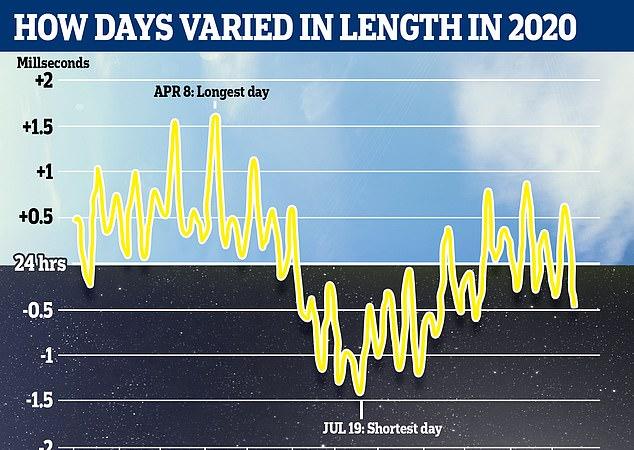The international chronography community has found that 2021 will pass "fast" because the Earth is rotating faster than at any time in the past 50 years. In order to ensure that the timing is precisely in line with the Rotation of the Earth, scientists are debating whether to add a "negative leap second", that is, to remove one second from the timing.
For decades, it has been reported that the time it takes the Earth to complete a rotation of one week is slightly longer than 24 hours (86,400 seconds), and in order to align atomic clocks with solar time, a total of 27 "leap seconds" have been added to the international chronography community since the 1970s. Although the "negative leap second" has never been added, the trend of the Earth's rotation circumference of more than 24 hours in 2020 has been reversed, and the day is now often shorter than 86400 seconds.

The time change of one week of the Earth's rotation in 2020. April 8 was the longest day on record, and July 19 was the shortest day on record.
On July 19, 2020, the day was 1.4602 milliseconds shorter than a full 24 hours, the shortest day on record.
It is reported that before 2020, the shortest day occurred in 2005. But in the last 12 months, that record has been broken an astonishing 28 times.
Scientists say the average time per day is now 0.5 seconds away from 24 full hours.
This negligible time loss can only be detected at the atomic level, but with wide-ranging implications.
For example, satellites and communications devices rely on real time alignment with solar time, which is determined by the positions of stars, moons, and suns. To maintain this harmonious relationship, the timekeepers of the Paris-based International Globe Rotation Service have previously added so-called "leap seconds" to their day.
This has happened 27 times since the 1970s, the last of which occurred on December 31, 2016.
Satellites and communications devices rely on real time alignment with solar time.
Because the Earth's rotation rate has been slowing down and not accelerating, there has never been a need to increase negative leap seconds before. Now, scientists are debating whether it might take a second to correct the widening gap.
Peter Whibberley, a senior research scientist in the Time and Frequency Group at the UK's National Physical Laboratory, said it would most likely require a negative leap second if the Earth's rotation rate increased further, but it was too early to discuss the issue.
"The future of leap seconds is also being discussed internationally, and it is also possible that the need for negative leap seconds will prompt people to decide to end leap seconds forever." He said.
Text/Nandu reporter Chen Lin